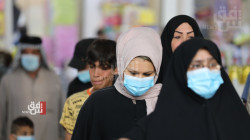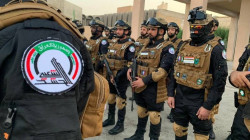Six suicides among Iraqi Security personnel in a week raise alarm

Shafaq News/ A troubling pattern has emerged within Iraq's security forces as six members reportedly took their own lives in less than a week.
The incidents, which span different parts of the country, have prompted calls for an urgent investigation into the underlying causes.
On Monday, three suicides were recorded: an officer in Baghdad’s Al-Shaab district shot himself at home, a policewoman in Sulaikh used her brother’s firearm to end her life, and a member of the Popular Mobilization Forces hanged himself in Muthanna’s Karama district.
Sunday saw another case when a Baghdad-based military warehouse officer shot himself at the Diyala Operations Command headquarters near Baquba. On Friday, a police officer in Nasiriyah hanged himself at home, while a civil defense officer in Saladin shot himself last Wednesday at work.
Former military officer Alaa al-Nashou highlighted the potential psychological and situational triggers for suicides among security personnel.
“Suicides during peacetime often stem from internal pressures within the unit or external family-related issues,” Nashou told Shafaq News.
He cited mistreatment by superiors and the inability to address grievances due to military hierarchy as significant stressors. “On the external front, family disputes or financial difficulties may push personnel to take drastic measures.”
Ali Naama al-Bandawi, a member of Iraq’s parliamentary Security and Defense Committee, attributed most cases to psychological or familial pressures.
“To date, no suicides have been officially linked to military stress. Commanders are attentive to personnel needs through weekly meetings and field visits,” al-Bandawi said.
He added that the current working conditions and salaries of security personnel have improved compared to previous years, including a rotation system providing 10 days on duty followed by 10 days of leave.
On the other hand, Dr. Haitham al-Zubaidi, a mental health specialist, emphasized that security personnel face unique challenges due to their roles.
“Continuous vigilance, familial pressures, and financial burdens compound over time. Despite their training, they remain human and have a limited capacity to endure,” al-Zubaidi explained.
“Suicide not only devastates families but also impacts society and the nation as a whole. Iraq must prioritize the mental well-being of its human resources,” al-Zubaidi concluded.





